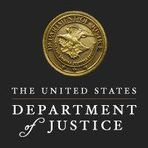A Day of Terror: The Boulder Attack and Its Aftermath
June 3, 2025, 3:47 pm

Location: United States, District of Columbia, Washington
Employees: 10001+
Founded date: 1789
Total raised: $6.5M

Location: United States, Kansas, Winfield
Employees: 1001-5000
Founded date: 2011
Total raised: $820K
On June 1, 2025, Boulder, Colorado, became the stage for a horrifying act of violence. The Pearl Street Mall, usually a vibrant hub of community life, turned into a scene of chaos and fear. An Egyptian man, Ahmed Soliman, living in the U.S. illegally, unleashed terror on a peaceful gathering. His actions were not just a crime; they were a chilling reminder of the rising tide of hate and violence that has gripped parts of the nation.
Soliman, 45, had a history marked by desperation. He entered the U.S. on a tourist visa in August 2022, which expired in February 2023. Despite filing for asylum, his status remained uncertain. Unable to legally purchase a firearm, he resorted to crafting Molotov cocktails, a decision that would lead to tragedy. He donned a gardener's disguise, complete with an orange vest and a backpack sprayer filled with gasoline. This was not just a costume; it was a mask for his malevolence.
Witnesses described a surreal scene. Soliman, shirtless and shouting “Free Palestine,” hurled incendiary devices into a crowd gathered for the “Run for Their Lives” demonstration. This event aimed to raise awareness for Israeli hostages held by Hamas. The irony was stark; a plea for peace became the backdrop for an act of terror. The attack was premeditated, a culmination of over a year of planning. Soliman’s intent was clear: he sought to target those he labeled as “Zionists.”
The aftermath was devastating. Eight victims, aged between 52 and 88, suffered injuries ranging from serious burns to minor wounds. Some were hospitalized, while others were treated on-site. The scene was chaotic, with witnesses recounting horror as flames engulfed individuals. A woman was seen lying on the ground, desperately trying to extinguish the fire consuming her. The images were haunting, a stark contrast to the peaceful gathering that had been moments before.
As the dust settled, the community grappled with the shock. Neighbors described Soliman as a kind family man, a father of five who shared food and greetings. Yet, the man they knew was now a stranger, transformed by a dark ideology. The juxtaposition of his family life against his violent actions left many bewildered. How could someone so seemingly ordinary harbor such hatred?
The FBI quickly labeled the attack as a “targeted act of violence” and a hate crime. Soliman’s motivations were rooted in a toxic mix of ideology and personal grievances. He expressed a desire to kill all “Zionist people,” a chilling statement that underscored the growing antisemitism in the U.S. The attack was not an isolated incident; it was part of a disturbing trend. Just days prior, two Israeli Embassy staffers were murdered in Washington, D.C., by a man shouting similar slogans.
In the wake of the attack, local and national leaders condemned the violence. Israeli Prime Minister Benjamin Netanyahu expressed solidarity with the victims, calling the act a “vicious terror attack.” President Donald Trump echoed these sentiments, emphasizing the need for secure borders and the deportation of “anti-American radicals.” The political rhetoric intensified, as both sides sought to leverage the tragedy for their narratives.
Boulder’s community responded with resilience. Rabbi Yisroel and Leah Wilhelm, leaders of the local Chabad House, urged residents to celebrate Shavuot joyously, reinforcing their commitment to heritage and tradition. Their message was clear: hate would not win. The community rallied together, showing strength in the face of adversity.
Law enforcement agencies worked tirelessly to piece together the events of that fateful day. Investigators combed through evidence, piecing together Soliman’s movements and motives. His arrest was swift, but the scars left on the community would take much longer to heal. The FBI’s involvement highlighted the seriousness of the situation, as they sought to address the broader implications of such ideologically driven violence.
As the investigation unfolded, questions lingered. What drove Soliman to such extremes? How could a man living among families and children harbor such deep-seated hatred? The answers remained elusive, buried beneath layers of personal and political turmoil.
The Pearl Street Mall attack serves as a grim reminder of the fragility of peace. It underscores the urgent need for dialogue and understanding in a world increasingly divided by ideology. The victims, innocent participants in a peaceful demonstration, became symbols of the fight against hate. Their stories must not be forgotten.
In the end, Boulder stands at a crossroads. The community must confront the darkness that has seeped into its midst. It must choose unity over division, love over hate. The road to healing will be long, but it is a journey worth taking. The spirit of Boulder, resilient and strong, will rise again. The echoes of that day will linger, but they will not define the community. Instead, they will serve as a catalyst for change, a call to action against the forces that seek to divide us.
Soliman, 45, had a history marked by desperation. He entered the U.S. on a tourist visa in August 2022, which expired in February 2023. Despite filing for asylum, his status remained uncertain. Unable to legally purchase a firearm, he resorted to crafting Molotov cocktails, a decision that would lead to tragedy. He donned a gardener's disguise, complete with an orange vest and a backpack sprayer filled with gasoline. This was not just a costume; it was a mask for his malevolence.
Witnesses described a surreal scene. Soliman, shirtless and shouting “Free Palestine,” hurled incendiary devices into a crowd gathered for the “Run for Their Lives” demonstration. This event aimed to raise awareness for Israeli hostages held by Hamas. The irony was stark; a plea for peace became the backdrop for an act of terror. The attack was premeditated, a culmination of over a year of planning. Soliman’s intent was clear: he sought to target those he labeled as “Zionists.”
The aftermath was devastating. Eight victims, aged between 52 and 88, suffered injuries ranging from serious burns to minor wounds. Some were hospitalized, while others were treated on-site. The scene was chaotic, with witnesses recounting horror as flames engulfed individuals. A woman was seen lying on the ground, desperately trying to extinguish the fire consuming her. The images were haunting, a stark contrast to the peaceful gathering that had been moments before.
As the dust settled, the community grappled with the shock. Neighbors described Soliman as a kind family man, a father of five who shared food and greetings. Yet, the man they knew was now a stranger, transformed by a dark ideology. The juxtaposition of his family life against his violent actions left many bewildered. How could someone so seemingly ordinary harbor such hatred?
The FBI quickly labeled the attack as a “targeted act of violence” and a hate crime. Soliman’s motivations were rooted in a toxic mix of ideology and personal grievances. He expressed a desire to kill all “Zionist people,” a chilling statement that underscored the growing antisemitism in the U.S. The attack was not an isolated incident; it was part of a disturbing trend. Just days prior, two Israeli Embassy staffers were murdered in Washington, D.C., by a man shouting similar slogans.
In the wake of the attack, local and national leaders condemned the violence. Israeli Prime Minister Benjamin Netanyahu expressed solidarity with the victims, calling the act a “vicious terror attack.” President Donald Trump echoed these sentiments, emphasizing the need for secure borders and the deportation of “anti-American radicals.” The political rhetoric intensified, as both sides sought to leverage the tragedy for their narratives.
Boulder’s community responded with resilience. Rabbi Yisroel and Leah Wilhelm, leaders of the local Chabad House, urged residents to celebrate Shavuot joyously, reinforcing their commitment to heritage and tradition. Their message was clear: hate would not win. The community rallied together, showing strength in the face of adversity.
Law enforcement agencies worked tirelessly to piece together the events of that fateful day. Investigators combed through evidence, piecing together Soliman’s movements and motives. His arrest was swift, but the scars left on the community would take much longer to heal. The FBI’s involvement highlighted the seriousness of the situation, as they sought to address the broader implications of such ideologically driven violence.
As the investigation unfolded, questions lingered. What drove Soliman to such extremes? How could a man living among families and children harbor such deep-seated hatred? The answers remained elusive, buried beneath layers of personal and political turmoil.
The Pearl Street Mall attack serves as a grim reminder of the fragility of peace. It underscores the urgent need for dialogue and understanding in a world increasingly divided by ideology. The victims, innocent participants in a peaceful demonstration, became symbols of the fight against hate. Their stories must not be forgotten.
In the end, Boulder stands at a crossroads. The community must confront the darkness that has seeped into its midst. It must choose unity over division, love over hate. The road to healing will be long, but it is a journey worth taking. The spirit of Boulder, resilient and strong, will rise again. The echoes of that day will linger, but they will not define the community. Instead, they will serve as a catalyst for change, a call to action against the forces that seek to divide us.
